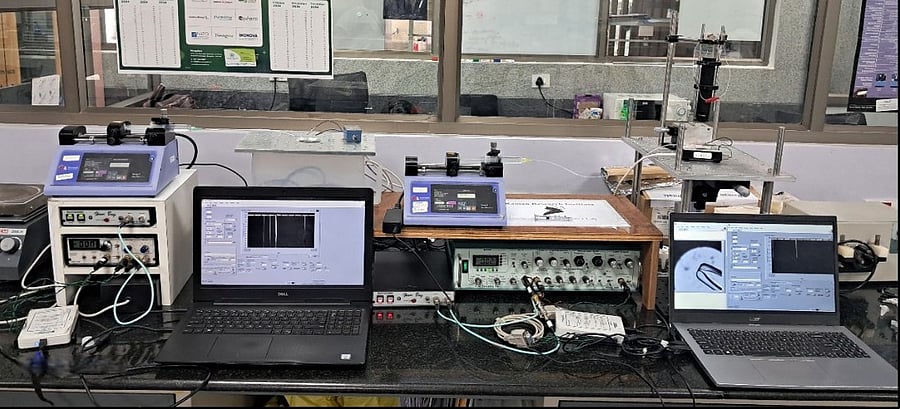
Bengaluru: In a breakthrough in blood disorder diagnostics, researchers at Bengaluru's Raman Research Institute (RRI) have developed a portable, affordable device to screen for sickle cell disease (SCD).
SCD, a genetic disorder that causes red blood cells to become stiff and clog blood vessels, affects millions — especially in rural India. India has the second highest burden of SCD in the world; 50,000 of the three lakh births with SCD every year are from India.
Currently, diagnosing SCD requires expensive tools like high-performance liquid chromatography (HPLC), which limits early detection in large populations.
The new device, developed by researchers Gautam Soni, S Kaushik, and A Mishra from RRI’s Soft Condensed Matter Team, in collaboration with Dr R Ross, Dr S Srivastava, and Dr CR Ross from St John’s Medical College Hospital, is a promising alternative.
It uses a novel electro-fluidic micropore system to measure the stiffness of red blood cells quickly and accurately. Since sickle cells are much stiffer than healthy ones, they take longer to pass through the micropore system in the device, altering the electrical signal. The team was able to measure both the stiffness and volume of the cells using this method, based on changes in the signal.
The actin system of a cell is responsible for its shape and size. The researchers used Latrunculin A (an actin inhibitor that reduces cell stiffness) to treat RBCs and obtain a controlled reading of stiffness, helping them calibrate the device.
"Whole cell stiffness, being an ubiquitous parameter for a cell’s health, may be applied beyond SCD screening — for instance, in tumour cell detection, veterinary blood disorders, and improving hydrogel materials used in drug delivery systems," the researchers said.
"The portability and cost-efficiency of the device would make it an attractive option for mass screening, leading to early detection of SCD in both rural and urban areas of the country," they added.